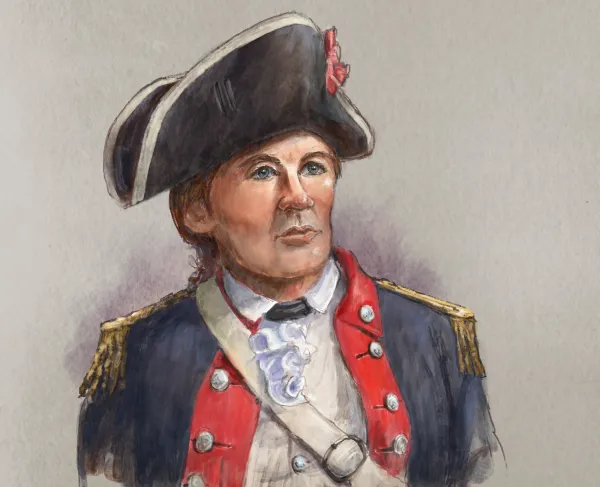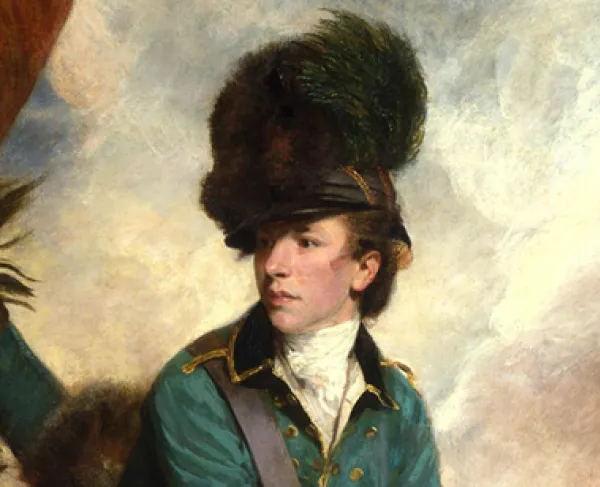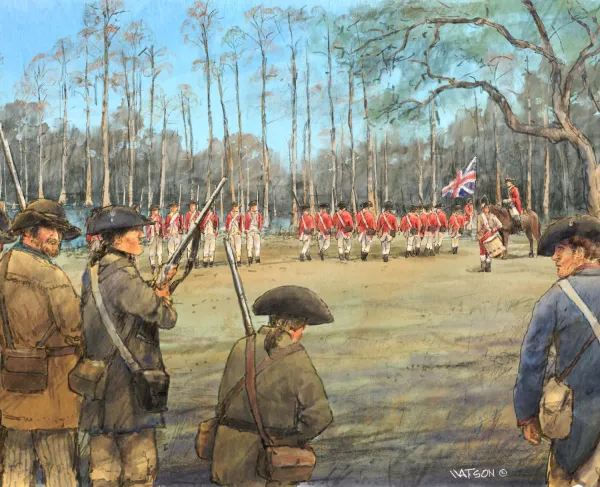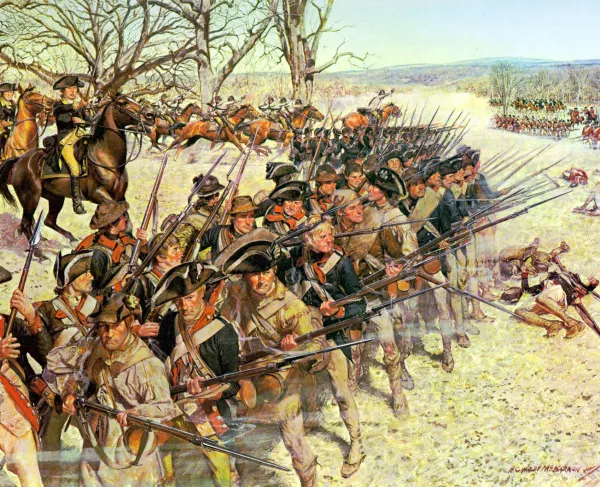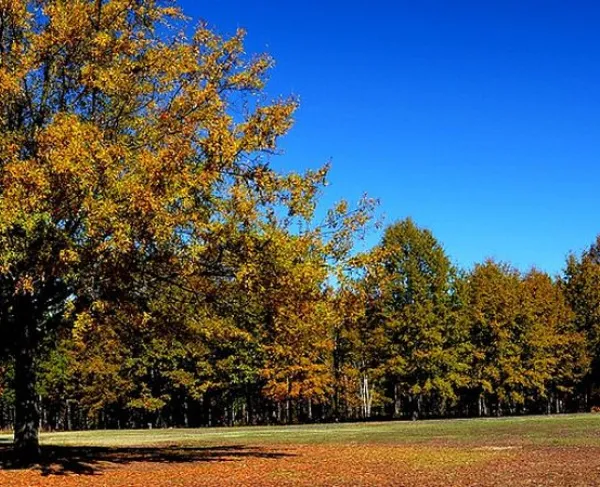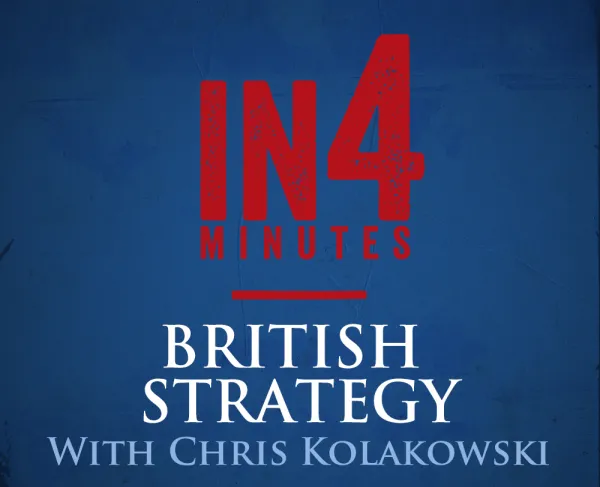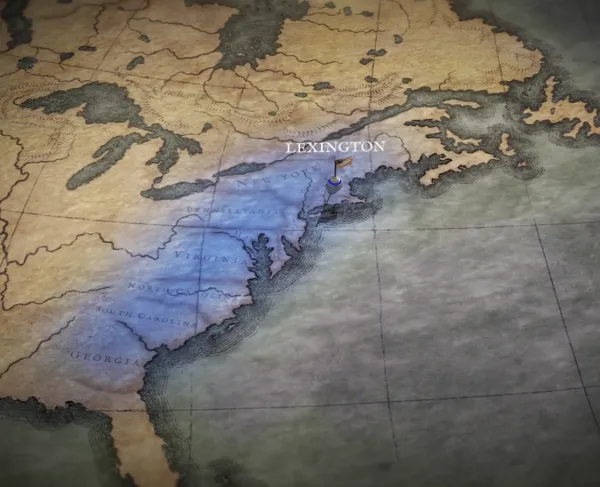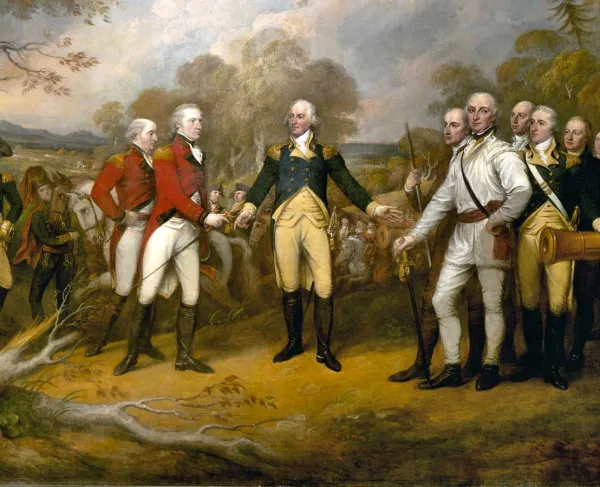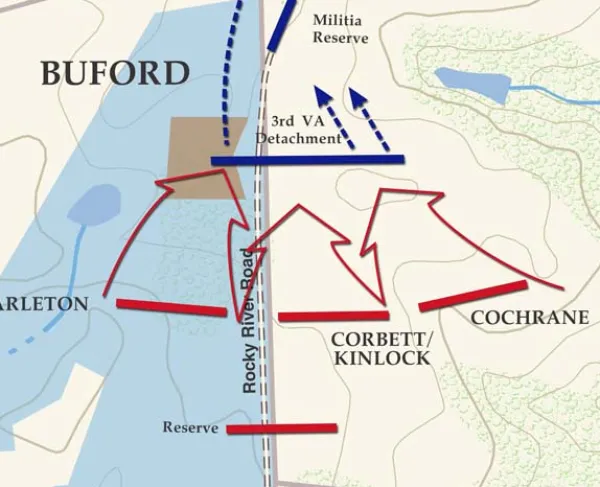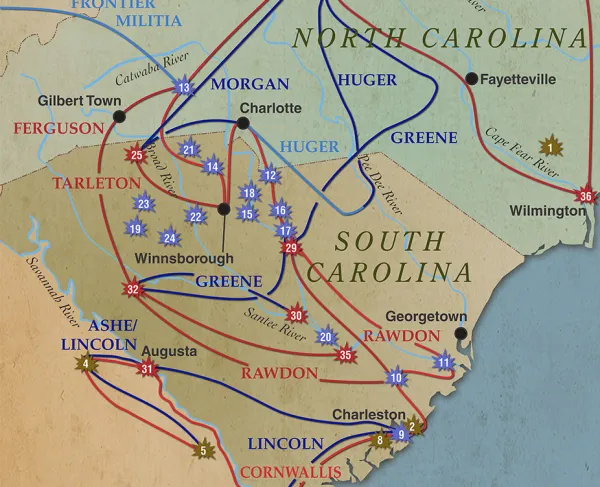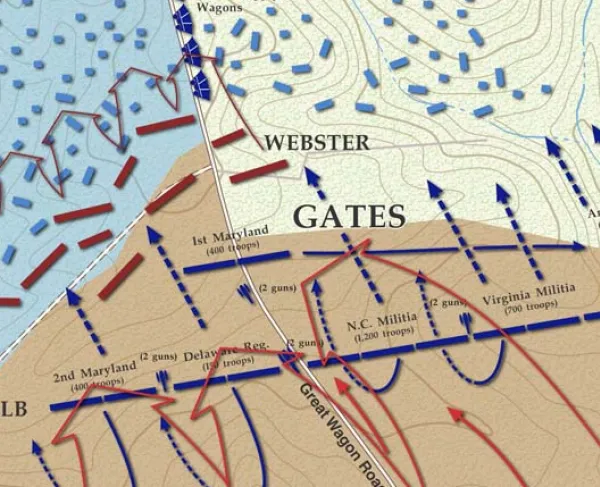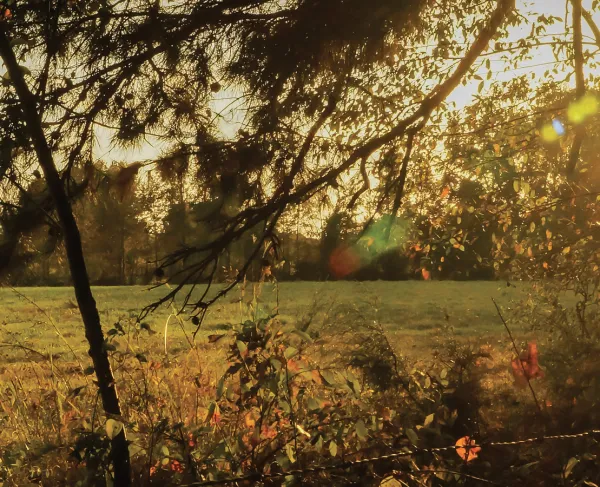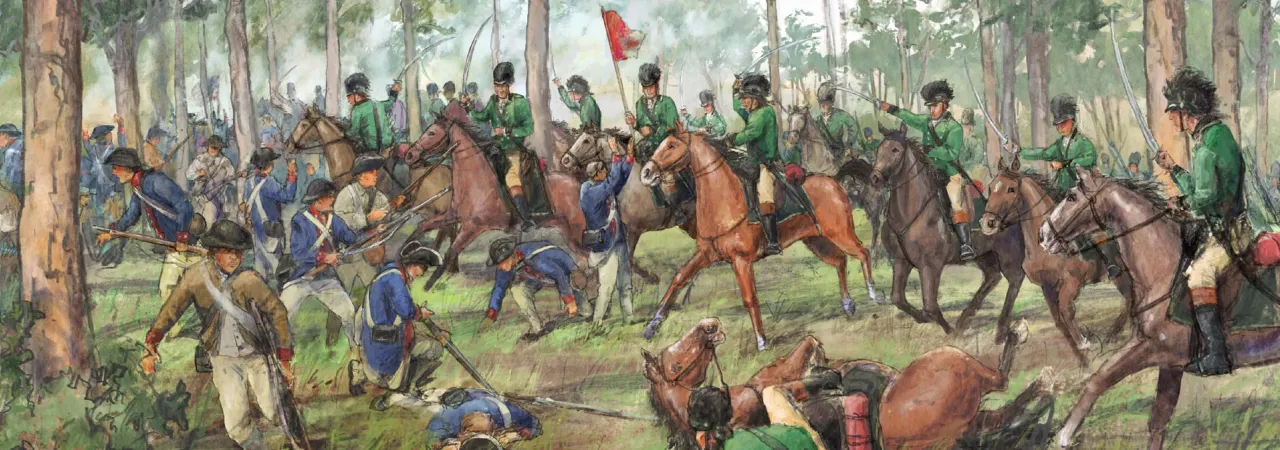
On May 29, 1780, the British Legion, led by Lieutenant Colonel Banastre Tarleton, attacked Patriot militia, commanded by Colonel Abraham Buford, who were retreating through Waxhaws toward North Carolina. The encounter soon turned into a bloodbath, with Tarleton’s men offering no “quarter,” or mercy, to the defeated American troops. Known afterward as “Buford’s Massacre,” the engagement inspired Patriot defiance and “Remember Waxhaws!” became a rallying cry.
Waxhaws
Buford's massacre
South Carolina | May 29, 1780
On May 29, 1780, British commander Banastre Tarleton engaged and overwhelmed a Patriot force under the command of Abraham Buford in a dreadful defeat for the Patriots. However, Continental forces in the South turned this stunning loss into a propaganda victory, stirring up anti-British sentiment throughout the colonies.
How It Ended
British Victory. Once Tarleton’s attack commenced, the Patriot lines were quickly overwhelmed and routed from the field. Many Patriot survivors recalled how the British massacred many men who tried to surrender—resulting in Tarleton becoming known as a butcher and the engagement becoming a battle cry for Patriot forces citing “Remember Waxhaws!” in the Southern Theatre.
In Context
On May 12, 1780, Charleston, South Carolina, fell to the British under the command of Sir Henry Clinton. With plans to return to New York, Clinton transferred command to his deputy, Gen. Charles, Lord Cornwallis.
In the days after the British capture of Charleston, South Carolina, Cornwallis soon learned of a column of reinforcements consisting of 380 men, the 3rd Virginia Detachment, under the command of Colonel Abraham Buford that failed to reach the city before it fell. Cornwallis dispatched Lieutenant Colonel Banastre Tarleton to pursue and engage Buford.
Even though the Americans were several days ahead of him, Tarleton moved his men 150 miles at a wicked pace, catching up with Buford on the afternoon of May 29, 1780. The area where the two forces caught sight of each other lies along the border of North and South Carolina, the Waxhaws.
Prior to reaching the Waxhaws, Tarleton sent ahead a message to Buford, demanding the Patriots surrender. Buford refused and ordered all his heavy baggage and weapons to continue moving northward. He then formed a battle line in an open field across the route of march, his infantry in a single line with orders not to fire until the British approached within ten yards.
Approaching Buford's position, Tarleton divided his force into three attacking columns. First, he deployed sixty British Legion dragoons and about the same number of mounted infantry to the right, intending to have the mounted infantry dismount and pour fire upon the Americans, pinning them down. At the same time, he formed a center column of the 17th Light Dragoons, as well as forty Legion dragoons, to charge straight towards the American center. The left column was led by Tarleton and consisted of thirty men of the Legion, ready to sweep the American right flank and drive for their baggage and reserves.
The British attack commenced as soon as all of their troops were in position. The Patriots managed to get off a single volley before being overwhelmed.
316
17
The British columns broke through positions, cutting down soldiers left and right. Many American survivors of the battle claimed that their comrades were massacred while trying to surrender. Buford managed to escape from the slaughter. The Battle of Waxhaws became known as “Buford’s Massacre,” and Tarleton, already known as an aggressive commander, was condemned as a butcher.
There is some debate as to whether or not a massacre took place, however, the evidence available is that Tarleton did lose control of his men, and Patriot soldiers were killed while attempting to surrender. The effect of the event in 1780 was dramatic. Patriot ranks swelled in response to the battle, and it served as a rallying point for the cause of independence. Just months later, as the Overmountain Men attacked a Loyalist force at King’s Mountain, their battle cry was “Remember the Waxhaws” and “Give them Buford’s play!”
In the aftermath of the Battle of Waxhaws, wounded soldiers from both sides were moved into surrounding homes and churches to be treated by the locals. One of the volunteers was Andrew Jackson, the seventh President of the United States.
Waxhaws: Featured Resources
All battles of the Southern Theater 1780 - 1783 Campaign
Related Battles
420
150
316
17
